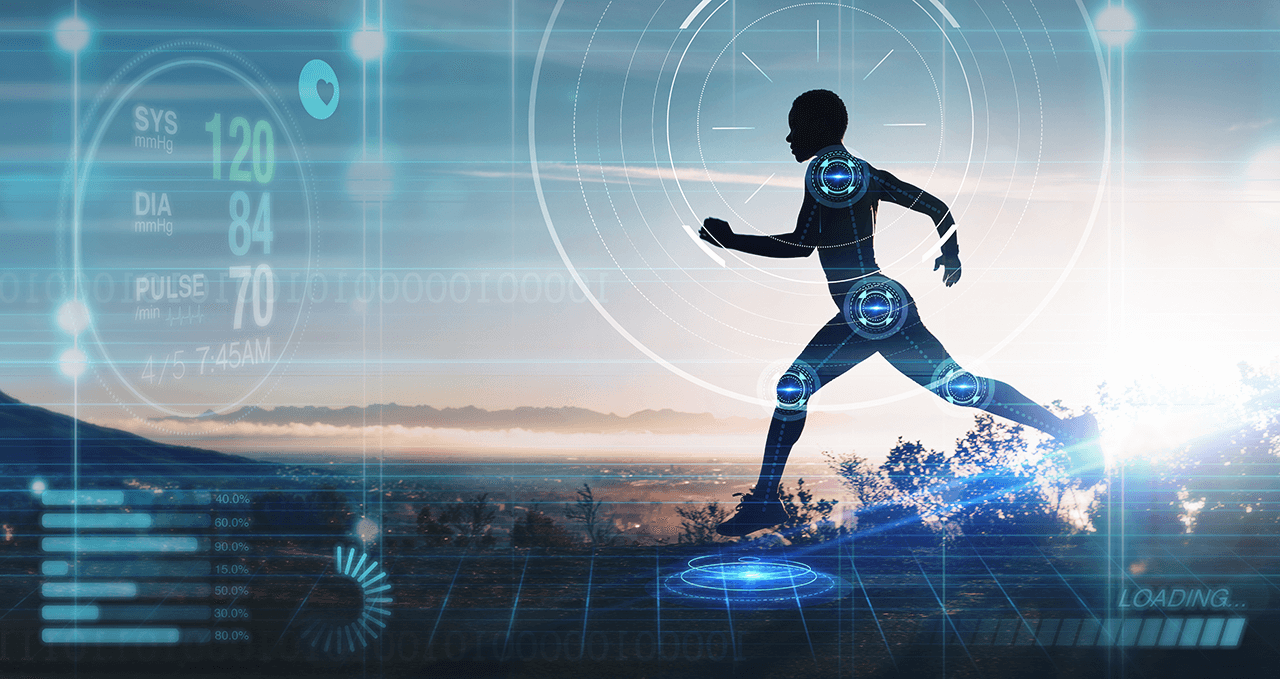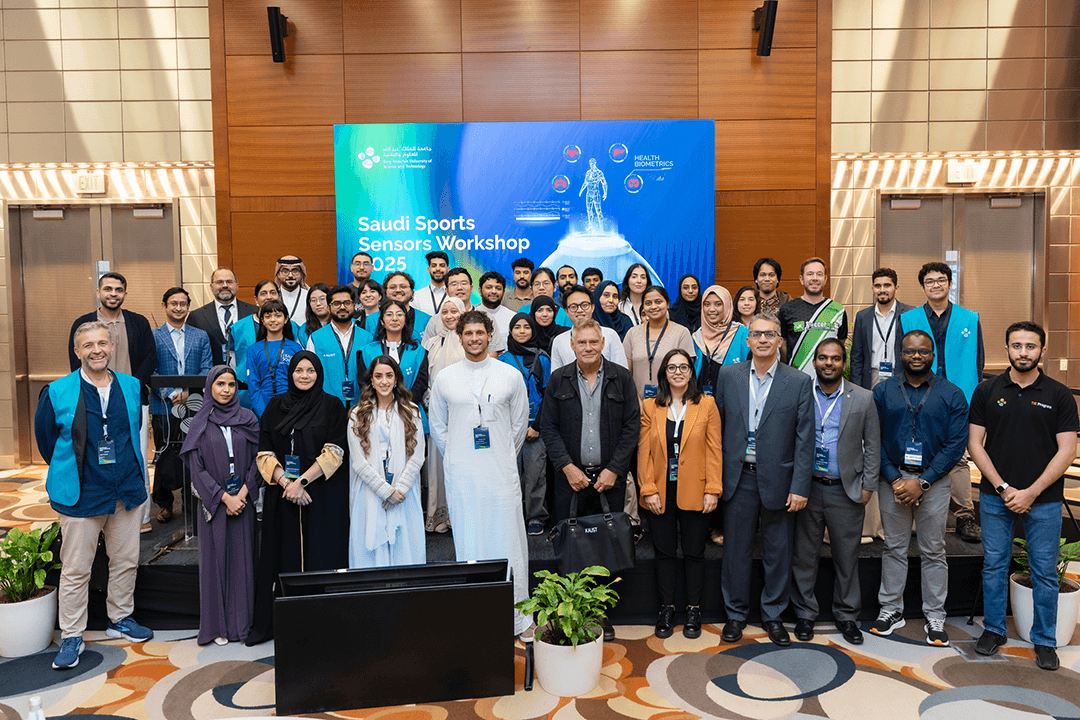From lab to medal podium to daily health: KAUST changing the game in Saudi sports science

When Rakan Alireza makes history next year as the first Saudi athlete to compete in cross-country skiing at the Winter Olympic Games, he hopes to do so with the support of Saudi-made, high-performance sensors developed in laboratories at King Abdullah University of Science and Technology (KAUST).
“The way modern science and its applications in sports are growing is incredible,” Alireza said. He anticipates that KAUST sensor technology could play an important role in his training ahead of Milano Cortina 2026, as well as within the Kingdom’s broader sports sector. “Athletes are trying to train smarter, not just harder, and we’re all chasing that top one percent — trying to work with everything we have to maximize performance.”
KAUST Professor Dana Alsulaiman, Materials Science and Applied Physics, shares the Olympian’s vision for in-Kingdom collaboration between academic researchers and elite athletes for the glory of Saudi Arabia. Discussions with Alireza and his coach are supporting the repurposing of key technologies from her lab for athletics, preventative health, and wellness, she noted. Together with Alireza, she also co-chaired a first for both KAUST and the nation: the Saudi Sports Sensors Workshop 2025.
“We’re tackling issues that are important to Saudi Arabia, but we're also developing technologies that are Saudi-made — we’re contributing to localizing innovation,” Alsulaiman said. “A lot of these sensors, we hope, are going to be created inside KAUST.”
Held October 23 on campus, the workshop brought together athletes, coaches, and researchers to explore how KAUST can advance national ambitions for regional and global professional sports excellence. The one-day event highlighted gaps in available sensor technologies, encouraged collaboration between KAUST and the Kingdom’s sports community, and featured participation from the U.K.’s Loughborough University — a worldwide leader in sport-related research.
“This is exactly what KAUST exists to do — to collaborate with exceptional partners on addressing the defining challenges of our time, especially those shaping the future of this part of the world,” said KAUST President Sir Edward Byrne AC. The workshop included representation from the Saudi Olympic and Paralympic Committee, he added, reflecting how the most powerful innovations in sports science emerge when research and real-world experience intersect.
“Our mission aligns totally with Saudi Vision 2030, which places science, innovation, and human well-being at the heart of the Kingdom’s transformative journey. Sports have become a vital part of this journey, not only as a source of national pride but as a pathway toward a healthier, more connected, and more innovative society.”
What KAUST can achieve through professional athletes “is virtually limitless,” according to Alireza. As demand grows for tools that deepen understanding of the human body, he said, innovations revealing new insights into athletic performance will also generate applications that extend far beyond the playing field. “Everyone can get a better quality of life by understanding what’s happening in their bodies.”
Partnership possibilities
As Sir Edward noted during his opening remarks, KAUST already is emerging as a Saudi leader at the intersection of science and sport, advancing wearable technologies that track movement, hydration, stress, and recovery in real time to help athletes train smarter and avoid injury. Building on its established portfolio of sensor and AI-driven research, KAUST continues to partner globally — including with McLaren Racing in motorsports — as part of its long-term commitment to advancing sports and performance innovation.
“There are a lot of technology developments at KAUST that can be applied to the sports sector, and we’ll be happy to partner,” Professor Imed Gallouzi, chair of the KAUST Center of Excellence for Smart Health, told the workshop. Professional sports and major event investments drive Saudi innovation, he said, creating technologies that advance performance, support athletes, and ultimately benefit society through trickle-down everyday solutions.
“Using high-level sport on the global stage, collecting data, and developing technology that caters to athletes will for sure have an impact on our health.”

The Saudi Sports Sensors Workshop 2025 at KAUST brought together researchers, athletes, and industry experts with a shared goal: advancing collaboration in sports science and wearable sensor innovation in support of Saudi Vision 2030.
Impactful workshop
KAUST is redefining wearable sensor technology — as highlighted during the Saudi Sports Sensors Workshop. KAUST Professor Sahika Inal, Bioengineering, discussed her lab’s bioelectronic sensors that seamlessly interface with human tissue. KAUST Professor Husam Alshareef, Materials Science and Applied Physics, described his team’s flexible, self-healing hydrogels and sweat-based biosensors that enable precise monitoring of athletic performance, fatigue, and recovery.
From Electrical and Computer Engineering, workshop participants learned about the KAUST IMPACT Lab and Professor Atif Shamim’s skin-friendly electrocardiogram patches, microwave lactate biosensors, and smart bandages that detect bleeding and infection. From the KAUST Sensors Lab of Professor Khaled Salama, they learned about wearable systems designed to make human movement measurable and intelligent for rehabilitation and athletic performance.
Meanwhile, KAUST Professor Tareq Al-Naffouri presented his research into artificial intelligence and signal processing to tackle dehydration. His lab is developing smartphone systems that measure hydration through fingertip scans.
Skin-deep solutions
For her part, Alsulaiman specializes in biosensors for disease detection and diagnostic applications. Building on this expertise, she has begun adapting her lab’s wearable and microneedle-based technologies for athletic performance and health monitoring. Her team is currently patenting a lactate sensor that Alireza and other athletes can use and help researchers refine — marking an important step for KAUST into the emerging field of sports sensor research.
“Our mission has always been, in the BioMAD Lab, to develop accessible technologies that enable us to detect diseases at the earliest stages before symptoms arrive,” Alsulaiman said. “Our goal now is to go one step back in time and develop technologies that enable preventative healthcare solutions. That’s exactly where sport comes into play.”
The same technologies helping Alireza and other athletes reach peak performance in national and international competitions will also enhance quality of life for people across Saudi Arabia and globally, she noted. In that sense, added Alsulaiman, everyone wins. “Everything we do is literally just trying to increase healthy lifespans through preventative medicine.”

